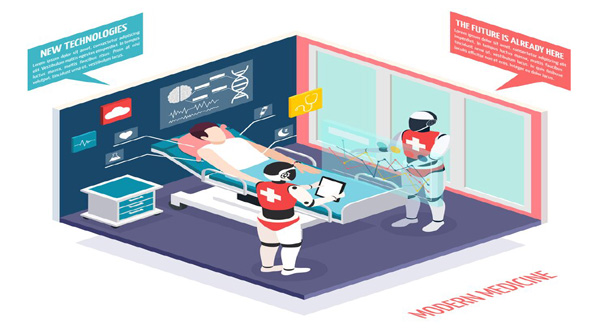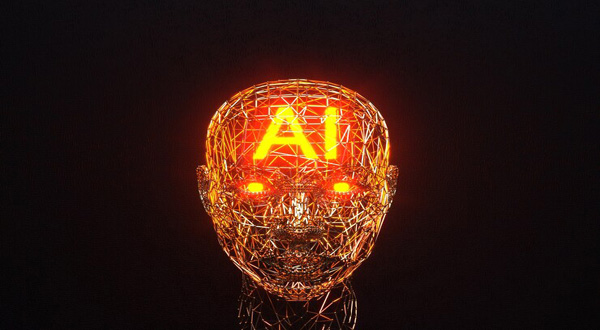Advantages of Artificial Intelligence in Healthcare
- Update Time : Thursday, March 7, 2024
- 21 Time View

Advantages of Artificial Intelligence in Healthcare: Artificial Intelligence (AI) is revolutionizing the healthcare industry, offering a myriad of benefits that have the potential to transform patient care, diagnosis, treatment, and overall healthcare management. In this article, we will explore the numerous advantages of integrating AI into healthcare practices and how it is reshaping the landscape of medicine.
Table of Contents
| Sr | Headings |
| — | ———————————————————— |
| 1 | Introduction |
| 2 | Streamlining Administrative Tasks |
| 3 | Improving Diagnostics and Disease Identification |
| 4 | Enhancing Treatment Plans |
| 5 | Personalized Medicine |
| 6 | Predictive Analytics |
| 7 | Remote Monitoring and Telemedicine |
| 8 | Drug Discovery and Development |
| 9 | Patient Engagement and Education |
| 10 | Ethical Considerations |
| 11 | Conclusion |
| 12 | FAQs |
- Introduction
Artificial Intelligence has emerged as a game-changer in healthcare, offering innovative solutions to longstanding challenges. Let’s delve into the advantages it brings to the table.
- Streamlining Administrative Tasks
AI-powered systems can automate administrative tasks like appointment scheduling, billing, and managing electronic health records, freeing up valuable time for healthcare professionals to focus on patient care.
- Improving Diagnostics and Disease Identification
Through machine learning algorithms and data analysis, AI can analyze vast amounts of medical data to assist in early disease detection, improving accuracy and efficiency in diagnosis.
Read More: Unraveling the Mystery: What is the Best Definition of Artificial Intelligence PDF?
- Enhancing Treatment Plans
AI can analyze patient data to personalize treatment plans, considering factors like medical history, genetics, and lifestyle choices, leading to more effective and tailored interventions.
- Personalized Medicine
With AI, healthcare providers can deliver individualized treatment regimens, optimizing medication dosage and therapy options based on a patient’s unique characteristics.
- Predictive Analytics
AI algorithms can predict health trends and potential outbreaks by analyzing data patterns, enabling proactive measures to be taken to prevent diseases and improve public health.
- Remote Monitoring and Telemedicine
AI facilitates remote patient monitoring through wearable devices and telemedicine platforms, allowing healthcare professionals to monitor patients’ health remotely and provide timely interventions.
- Drug Discovery and Development
AI accelerates the drug discovery process by analyzing vast datasets to identify potential drug candidates and predict their efficacy, significantly reducing the time and cost involved in bringing new drugs to market.
- Patient Engagement and Education
AI-powered chatbots and virtual assistants can provide 24/7 patient support, answering queries, providing health information, and encouraging healthy behaviors, enhancing patient engagement and education.
- Ethical Considerations
While AI offers numerous benefits, it’s essential to address ethical considerations regarding patient privacy, data security, and algorithm biases to ensure responsible and equitable use of AI in healthcare.
Read More Unveiling the Origins: When was AI First Defined?
- Conclusion
In conclusion, the integration of Artificial Intelligence in healthcare brings forth a plethora of advantages, ranging from streamlining administrative tasks to revolutionizing treatment approaches. Embracing AI holds the potential to significantly improve patient outcomes and transform the future of healthcare.
- FAQs
Q1: How does AI improve diagnostic accuracy?
AI analyzes medical data to identify patterns and anomalies, assisting healthcare providers in making more accurate and timely diagnoses.
Q2: Can AI replace human healthcare professionals?
No, AI complements the work of healthcare professionals by automating tasks and providing valuable insights, but human expertise and empathy remain irreplaceable.
Q3: Is AI secure for handling sensitive patient data?
AI systems employ robust security measures to ensure the confidentiality and integrity of patient data, adhering to strict privacy regulations.
Q4: How does AI impact healthcare accessibility?
AI enables remote monitoring and telemedicine, improving healthcare accessibility for individuals in remote or underserved areas.
Q5: What are the limitations of AI in healthcare?
AI’s reliance on data quality, algorithm biases, and ethical concerns pose challenges that need to be addressed to harness its full potential in healthcare.
Artificial Intelligence is undoubtedly revolutionizing healthcare, offering unprecedented opportunities to improve patient care, enhance diagnostic accuracy, and streamline healthcare processes. As technology continues to advance, the integration of AI is poised to shape a more efficient, personalized, and accessible healthcare system for all.












